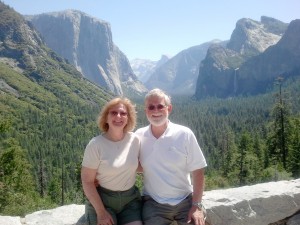
Isaiah 42:3c-4a
He served faithfully. The Hebrew word used here presents the idea of certainty and dependability. It is used of God’s nature (Exodus 34:6), God’s words (Psalm 119:142), and his rescue and protection of his people (Psalm 91:40). Here it points out that Jesus the Servant of the Lord is faithful to the mission that God the Father gave him. At the end of his earthly ministry he could say that he had completed the work that the Father had given him to do (John 17:4). He faithfully obeyed God by always doing what pleased him, and by being the perfect and final sacrifice for sin. In the same way, Christ will be faithful to his people (2 Timothy 2:11-13).
He endured in the work God gave him to do. He provided his strength for the neediness of the people. The words translated “grow weak” and be “discouraged” in verse four pick up words that are translated “bruised” and “smoldering” in verse three. Though the Servant would have to face the same pressures as his people, he triumphed where we fail. We can see this at various points in the Gospels. Jesus sleeps in the boat while his disciples are filled with fear (Mark 4:38). Jesus has compassion on the crowds when the disciples wanted to send them away (Mark 6:34, 36). Jesus cast out a demon when the disciples couldn’t (Mark 9:25-29). Jesus welcomed the children when the disciples wouldn’t (Mark 10:13-16). Jesus prayed while the disciples slept (Mark 14:32-41). And he conquered the devil and temptation while we often fail (Hebrews 4:15).
He persisted in the face of difficulties. One of the biggest failings all of us have is to become discouraged, depressed, and to quit or want to quit in the face of hardship and opposition. Jesus kept on when the people of his hometown tried to throw him down a cliff (Luke 4:29), when the Jewish religious leaders became critical (Luke 5:21-26), and when all the people of an area asked him to leave (Luke 8:37). Jesus would not quit when people laughed at him (Luke 8:53), when the Samaritans wouldn’t welcome him (Luke 9:53), and when Jerusalem rejected him as king (Luke 13:34). He persevered when only one man said thank you (Luke 17:17), when a prospective convert walked away (Luke 18:23), and when he saw his Father’s house turned into a den of robbers (Luke 19:46). Most of all he endured while he was mocked, beaten, spit on, scourged, crucified, and forsaken by all. Praise God, the Lord Jesus did not grow weak or become discouraged! His love and obedience were so great that he endured all to save us!
This is an excellent time to bow and to ask the victorious Jesus to save you. If you are saved, say “Thank you, Jesus!” We have a strong Savior who sticks with us and who will carry out his work in us (Philippians 1:6). Approach your life situation today with faith in him. Make Christ’s way of serving the Lord part of the way in which you look at your life. “Yes, this ____________ is happening to me, but the Lord Jesus is faithful, endures, and persists in his grace to me.”
Grace and peace, David





 wanted us to know, and the way many of us learn is by repetition.
wanted us to know, and the way many of us learn is by repetition. not directly anyway. But countless evangelical Christians treat the topic that way. Before 2016 begins, I want to talk about reading the Bible through this year.
not directly anyway. But countless evangelical Christians treat the topic that way. Before 2016 begins, I want to talk about reading the Bible through this year.
 es, and what he has done, is doing, and will surely do. The infinite God tells us that he is a Three Person Being: Father, Son, and Holy Spirit. This is very hard for us to understand, yet it answers many questions in the story God tells in the Bible. In Isaiah 42:1 we hear God the Father speaking of the One that he calls his “Servant” and which the New Testament Scriptures tell us is his one and only Son. And we hear him talking of Another, whom he calls “my Spirit”, whom he will put on his Servant. So then, in this text we encounter the Three Persons of the Trinity.
es, and what he has done, is doing, and will surely do. The infinite God tells us that he is a Three Person Being: Father, Son, and Holy Spirit. This is very hard for us to understand, yet it answers many questions in the story God tells in the Bible. In Isaiah 42:1 we hear God the Father speaking of the One that he calls his “Servant” and which the New Testament Scriptures tell us is his one and only Son. And we hear him talking of Another, whom he calls “my Spirit”, whom he will put on his Servant. So then, in this text we encounter the Three Persons of the Trinity.